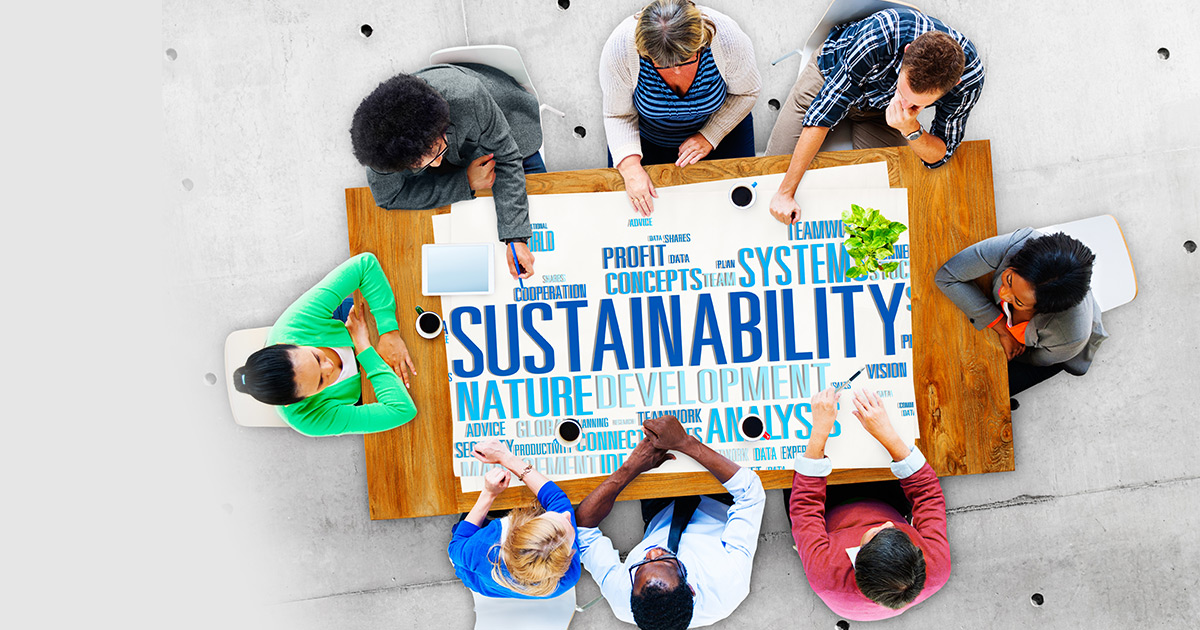Understanding Sustainability and How Clean the World is Shaping a Better Future for Our Planet
The Power of Sustainability
Sustainability is an increasingly important concept today as we face pressing environmental, social, and economic challenges. The concept of sustainability encompasses a wide range of practices and principles aimed at creating a balance and awareness of our impact on the world.
Sustainability practices and principles not only impact the environment, but they also have a massive pull on where consumers choose to take their business. According to The Roundup, 84% of consumers say “poor environmental practices” will push them away from a brand or company.
What is Sustainability?
At its core, sustainability refers to the ability to meet present needs without compromising the ability of future generations to meet their own needs. It involves finding ways to live and operate that minimize negative environmental impacts while fostering social well-being and economic prosperity. Sustainability seeks to strike a delicate balance between environmental stewardship, social equity, and economic development.
Environmental Factor
One crucial aspect of sustainability is the preservation and restoration of the natural environment. It involves conserving resources, minimizing pollution and waste, and protecting biodiversity.
Embracing renewable energy sources, adopting sustainable agriculture practices, reducing greenhouse gas emissions, and promoting efficient water and waste management are all vital components of the environmental dimension of sustainability.
Social Factor
The social dimension of sustainability focuses on promoting equity, justice, and quality of life for all individuals and communities. Social sustainability ensures access to basic human rights such as clean water, sanitation, education, healthcare, and a safe living environment. It also involves fostering inclusive societies, respecting cultural diversity, and promoting fair and ethical business practices that prioritize workers’ rights and well-being.
Economic Factor
Economic sustainability aims to create financially viable systems that contribute to long-term prosperity. It involves transitioning from the traditional linear “take-make-dispose” model, where resources are harvested, used in product manufacturing, and discarded as waste, to a circular economy.
A circular economy emphasizes resource efficiency, waste reduction, and the reuse and recycling of materials. Businesses priorizing economic sustainability can achieve competitive advantages through innovation, cost savings, enhanced brand reputation, and access to new markets and opportunities.
The Importance of Sustainability
Sustainability is essential for several reasons. Firstly, it helps protect and preserve the planet’s natural resources, ensuring their availability for future generations. By addressing environmental challenges such as climate change, deforestation, and pollution, sustainability promotes the long-term well-being of ecosystems and the diverse species that depend on them.
Secondly, sustainability is linked to social progress. It addresses social inequalities, promotes social cohesion, and strives to create a just and inclusive society where everyone has equal opportunities and access to essential services and resources. Sustainable practices help reduce poverty, improve public health, and enhance overall quality of life.
Lastly, sustainability is crucial for economic stability and resilience. By integrating sustainable practices into business models, companies can reduce operational costs, enhance resource efficiency, and mitigate risks associated with climate change and resource scarcity. Additionally, sustainable investments contribute to job creation, economic growth, and the development of innovative solutions.
Wrapping Up on Sustainability
Sustainability is a comprehensive and interconnected concept encompassing environmental, social, and economic factors. It represents our collective responsibility to create a future where humans can thrive in harmony with nature. By embracing sustainability in our personal choices, businesses, and policies, we can foster a more resilient, equitable, and prosperous world for generations to come.
Here at Clean the World, we are dedicated to supporting and advocating positive, sustainable actions with our partners. By working together in partnerships, Clean the World can make a substantial impact while cultivating strong relationships, which is number 17 of the United Nations Sustainable Development Goals (SDGs). Together, we can shape a sustainable future and safeguard the well-being of our planet.
If you want to learn how Clean the World can support your sustainability objectives, please do not hesitate to contact us at info@cleantheworld.org.
FAQs - Understanding Sustainability: Shaping a Better Future for Our Planet
What is sustainability?
Sustainability refers to the ability to meet present needs without compromising the ability of future generations to meet their own needs. It involves balancing environmental, social, and economic considerations to minimize negative impacts and promote well-being.
What does the environmental factor of sustainability entail?
The environmental aspect of sustainability involves conserving resources, reducing pollution and waste, protecting biodiversity, adopting renewable energy sources, following sustainable agriculture practices, and managing water supplies and waste disposal.
What is the focus of the social aspect of sustainability?
The social factor emphasizes equity, justice, and quality of life for all. It includes ensuring communities have access to clean water, education, healthcare, and a safe living environment. Social sustainability also promotes inclusive societies and ethical business practices.
How does sustainability relate to the economy?
Economic sustainability aims for financially viable systems that contribute to long-term prosperity. It involves transitioning to circular economies, resource efficiency, waste reduction, and sustainable business practices, leading to innovation, cost savings, and enhanced brand reputation.
Why is sustainability important?
Sustainability is important because it safeguards natural resources for future generations, addresses social inequalities, promotes social cohesion, reduces poverty, improves public health, enhances quality of life, and contributes to economic stability and growth.
How can businesses benefit from sustainability?
Businesses can gain competitive advantages by adopting sustainable practices. These practices reduce costs, enhance resource efficiency, improve brand reputation, and provide access to new markets.
How does sustainability relate to Clean the World?
Clean the World is dedicated to supporting and advocating for positive, sustainable actions through partnerships. These partnerships align with the United Nations Sustainable Development Goal (SDG) 17, “partnerships for the goals,” and work to highlight the substantial impact achievable through collaboration.
How does sustainability contribute to a better future?
Embracing sustainability in personal choices, businesses, and policies fosters a resilient, equitable, and prosperous world where humans thrive in harmony with nature, ensuring the well-being of present and future generations.
How can I get in touch with Clean the World for sustainability support?
To learn how Clean the World can support your sustainability objectives, reach out to us at info@cleantheworld.org.






